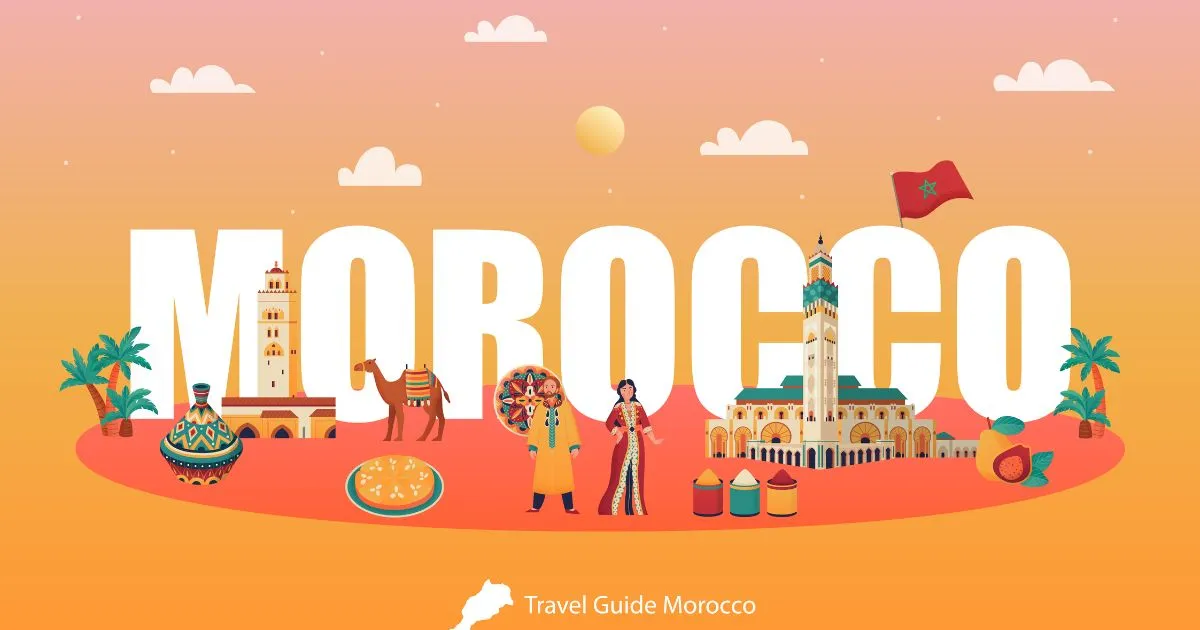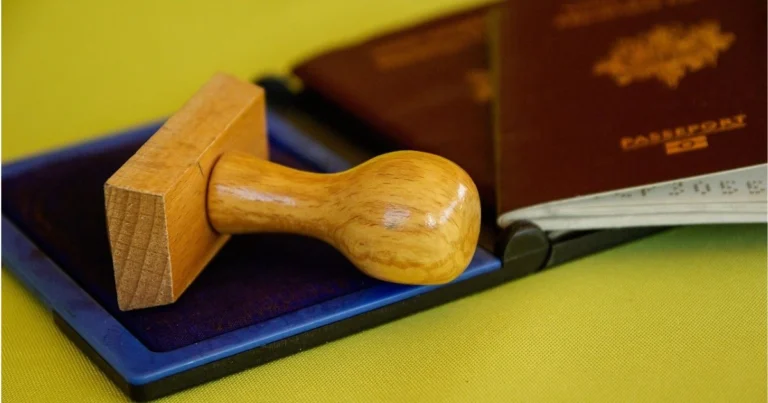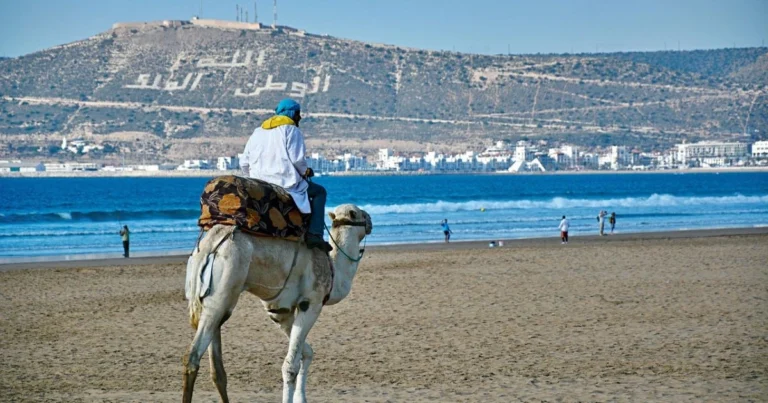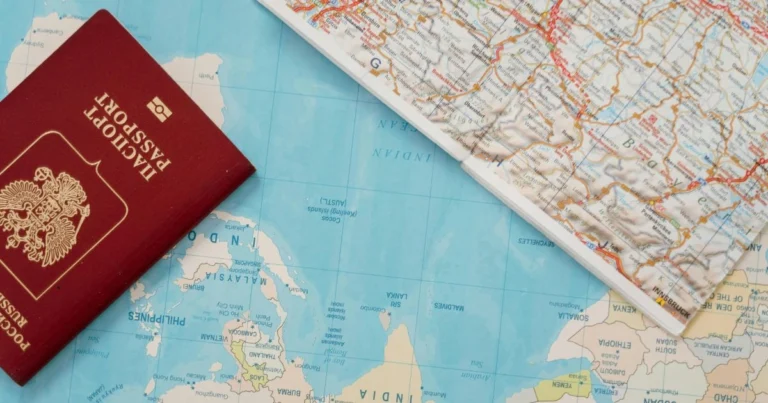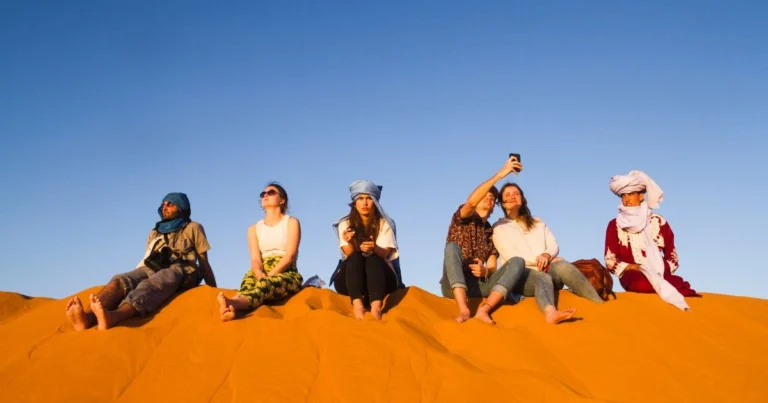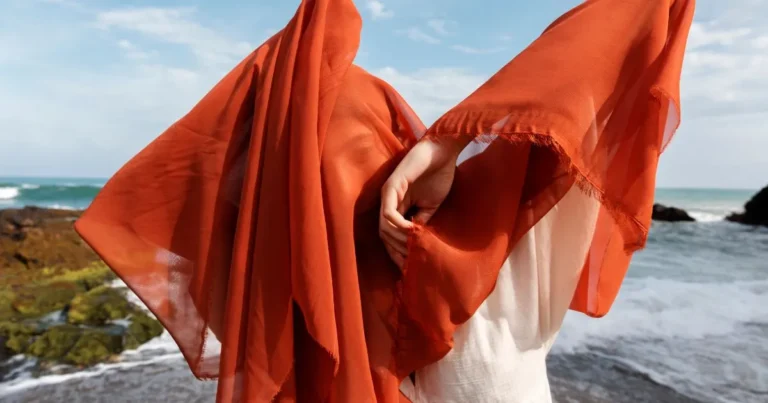Is Morocco Safe to Travel? Your Complete 2025 Safety Guide
Table of Contents
Is Morocco Safe to Travel?
Imagine diving into Marrakech’s colorful marketplaces, exploring the sapphire-hued pathways of Chefchaouen, or feeling the mystique of the great Sahara wilderness. Personal safety understandably ranks as a key factor in planning any foreign travel experience. So, is Morocco safe to travel to? The answer is nuanced but reassuring.
In general, Morocco enjoys a solid reputation for visitor safety and security. However, like any travel destination, it has its share of risks. Petty crime, scams, and occasional safety concerns exist, but with proper awareness and precautions, you can significantly minimize your risk and enjoy an incredible Moroccan experience.
This comprehensive guide will cover current travel advisories, specific safety concerns in major cities, common scams to watch out for, practical safety tips, specialized advice for solo female travelers and families, and essential resources for staying informed throughout your journey.
Having researched extensively and compiled insights from seasoned Morocco travelers, government sources, and local experts, this guide provides you with the most current and practical safety information to help you travel confidently through this enchanting North African kingdom.
Current Travel Advisories: What Government Sources Say
Official Government Positions
United States Department of State: Currently maintains a Level 2: Exercise Increased Caution advisory for Morocco. This level indicates that travelers should be aware of heightened risks but that travel is generally safe with proper precautions.
Key Advisory Points:
- Exercise increased caution due to terrorism concerns
- Be particularly alert in tourist locations and crowded public venues
- Avoid demonstrations and large gatherings
- Monitor local media for security updates
United Kingdom Foreign Office: Advises against all travel to areas within 5km of the border with Algeria, while the rest of Morocco is considered safe for travel with standard precautions.
Canadian Government: Issues similar guidance, recommending increased caution throughout Morocco while noting that most visits are trouble-free.
Understanding Advisory Levels
| Advisory Level | Meaning | Recommended Action |
|---|---|---|
| Level 1: Exercise Normal Precautions | Standard safety measures | Regular travel precautions |
| Level 2: Exercise Increased Caution | Some areas of concern | Enhanced awareness and preparation |
| Level 3: Reconsider Travel | Serious risks present | Evaluate necessity of travel |
| Level 4: Do Not Travel | Very high risk | Avoid travel entirely |
Geographic Specificity
Higher Risk Areas:
- Border regions with Algeria (within 5km)
- Remote desert areas without proper guides
- Certain neighborhoods in Casablanca after dark
Generally Safe Regions:
- Major tourist cities (Marrakech, Fes, Chefchaouen)
- Established tourist routes
- Popular coastal destinations (Essaouira, Agadir)
Safety Concerns in Major Cities
Marrakech Safety: Navigating the Red City
Marrakech safety is a primary concern for many visitors, given its status as Morocco’s top tourist destination.The city offers its own set of difficulties, though they’re easily handled with proper attention.
Common Safety Issues:
Scams and Touts:
- Fake guides approaching tourists near major attractions
- Inflated prices for goods and services
- “Free” henna tattoos that turn into aggressive payment demands
- False claims that attractions are closed to redirect tourists to shops
Pickpocketing Hotspots:
- Djemaa el-Fna square, especially during evening crowds
- Narrow alleyways of the medina
- Busy souks during peak shopping hours
- Public transportation and taxi queues
Traffic Safety Concerns:
- Chaotic traffic patterns with mixed vehicles, motorcycles, and pedestrians
- Limited traffic signal compliance
- Narrow streets in the medina with delivery carts and motorcycles
Aggressive Vendors:
- Persistent sales tactics in tourist areas
- Following tourists for extended periods
- Making physical advances or contact attempts to command tourists’ awareness
Safety Tips for Marrakech:
- Stay in groups when exploring the medina
- Use official, licensed guides (identifiable by official badges)
- Keep valuables secured and avoid displaying expensive items
- Learn basic Arabic phrases for politely declining offers
- Use reputable riads or hotels with good reviews
Fes: Ancient City Navigation Challenges
Unique Safety Considerations:
- Getting Lost: The medina of Fes is one of the world’s largest and most complex. GPS often fails in the narrow alleyways.
- Forceful Tour Promoters: Locals presenting themselves as helpful with directions generally expect generous payment in return.
- Petty Theft: Opportunistic pickpocketing in crowded areas
Fes Safety Strategies:
- Hire reputable guides through your accommodation or official tourism office
- Take photos of key landmarks to help navigate back
- Keep emergency contact information easily accessible
- Avoid carrying large amounts of cash
Casablanca: Urban Safety Dynamics
Primary Concerns:
- Petty Crime: Higher rates in tourist areas and beaches
- Neighborhood Awareness: Some districts are best avoided after dark, particularly around Ain Diab and certain parts of the city center
- Transportation Safety: Unofficial taxis and ride services may pose risks
Casablanca Safety Recommendations:
- Use hotel-recommended transportation services
- Stay in well-lit, populated areas after dark
- Take additional precautions while operating ATMs and dealing with currency transactions
- Choose accommodations in safer districts like Maarif or near the Hassan II Mosque
Chefchaouen: The Blue Pearl’s Relative Safety
Generally Safer Environment:
- Lower crime rates compared to larger cities
- More relaxed atmosphere
- Strong community policing
Potential Concerns:
- Cannabis-Related Situations: The Rif area is known for marijuana production; courteously refuse any proposals
- Mountain Trail Safety: Some hiking routes require proper preparation and guides
Other Notable Destinations
Essaouira:
- Generally very safe for tourists
- Coastal location provides natural boundaries
- Strong tourist police presence
Agadir:
- Modern resort city with good security infrastructure
- Beach safety awareness needed (strong currents)
- Standard precautions for tourist areas
Common Scams in Morocco: Recognition and Prevention

Understanding prevalent scams is crucial for safe travel. Here are the most common schemes targeting tourists:
The “Helpful Local” Scam
How It Works: A friendly local approaches offering help with directions or recommendations, then demands payment or leads you to shops where they receive commissions.
Prevention:
- Politely decline unsolicited help
- Use official tourism information centers
- Ask for assistance only from uniformed officials or your accommodation staff
The “Road Closed” Scam
How It Works: Fake officials or locals claim your intended route is closed, offering alternative routes that lead to shops or require guide services.
Prevention:
- Verify road conditions through official channels
- Maintain your journey unless official obstructions appear in your path
- Use GPS and official mapping services
The “Free Henna” Scam
How It Works: Women offer “free” henna tattoos, then demand payment after application, sometimes becoming aggressive.
Prevention:
- Decline all unsolicited services firmly
- Only use henna artists recommended by reputable sources
- Establish clear pricing before any service
The “Broken Item” Scam
How It Works: Scammers claim you’ve damaged an item in their shop and demand payment for expensive “antique” pieces.
Prevention:
- Don’t touch items unless you’re seriously considering purchase
- Shop with reputable dealers
- Take photos of items before handling if necessary
Taxi and Transportation Scams
Common Issues:
- Meters “not working”
- Taking longer routes
- Demanding higher prices from foreigners
Prevention:
- Agree on fares before starting the journey
- Use ride-sharing apps where available
- Learn basic fare ranges for common routes
Practical Safety Tips for All Travelers
General Awareness and Situational Safety
Environmental Awareness:
- Stay watchful in bustling environments, especially marketplaces and celebrated attractions
- Trust your instincts if a situation feels uncomfortable
- Keep mental notes of exit routes in unfamiliar places
- Avoid isolated areas, particularly after dark
Cultural Sensitivity:
- Dress Conservatively: Morocco is a Muslim-majority country. Both men and women should dress modestly, covering shoulders and knees
- Respect Religious Practices: Be mindful during prayer times and religious holidays
- Photography Etiquette: Always ask permission before photographing people
Protecting Your Belongings
Essential Security Measures:
| Item | Security Strategy |
|---|---|
| Passport | Keep original in hotel safe, carry certified copies |
| Money | Use money belts, divide cash among multiple locations |
| Credit Cards | Notify banks of travel plans, carry backup cards |
| Electronics | Use inconspicuous cases, avoid displaying expensive items |
| Medications | Keep in original containers, carry prescriptions |
Accommodation Security:
- Choose accommodations with positive safety reviews
- Use hotel safes for valuables
- Verify door locks and room security upon arrival
- Keep emergency contact information easily accessible
Transportation Safety
Taxi Services:
- Use official taxi services with meters
- Avoid unmarked or unofficial vehicles
- Share taxi details with your accommodation
Public Transportation:
- Be extra vigilant with belongings on buses and trains
- Choose first-class options for overnight journeys when available
- Keep important documents and money secured separately
Communication and Emergency Preparedness
Essential Contacts:
- Police: 19
- Fire Department: 15
- Medical Emergency: 15
- Tourist Police: Available in major tourist areas
Communication Strategy:
- Purchase local SIM cards for reliable connectivity
- Download offline maps and translation apps
- Share itineraries with family or friends
- Register with your embassy if staying long-term
Basic Arabic Phrases for Safety:
| English | Arabic | Pronunciation |
|---|---|---|
| Help | مساعدة | Musa’ada |
| Police | شرطة | Shurta |
| No, thank you | لا شكرا | La, shukran |
| I don’t understand | لا أفهم | La afham |
| Leave me alone | اتركني وشأني | Utrukni wa sha’ni |
Health and Food Safety
Water Safety:
- Drink only bottled or properly treated water
- Avoid ice unless from reputable sources
- Use bottled water for brushing teeth
Food Safety Guidelines:
- Choose busy restaurants with high turnover
- Ensure meat is thoroughly cooked
- Be cautious with raw vegetables and fruits you can’t peel
- Avoid street food unless from established, busy vendors
Is Morocco Safe for Solo Female Travellers?
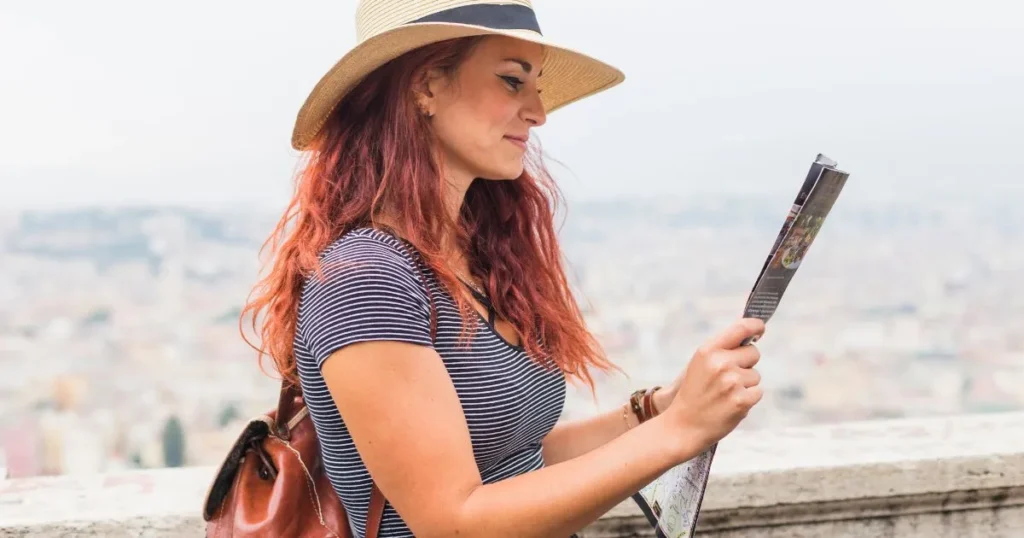
The short answer: Yes, but with additional precautions. Morocco can be a rewarding destination for solo female travelers, though it requires extra awareness and preparation.
Understanding Cultural Context
Social Dynamics: Morocco’s traditional culture means solo female travelers may receive more attention than in Western countries. This attention ranges from curious stares to unwanted verbal interactions, but serious incidents are relatively rare among tourists who take proper precautions.
Specific Safety Strategies for Solo Female Travelers
Accommodation Choices:
- Select riads or hotels with excellent female traveler reviews
- Choose accommodations in well-lit, populated areas
- Consider female-only sections in traditional accommodations when available
- Verify 24-hour reception and security measures
Dress Code Considerations:
- Cover shoulders and knees in all public areas
- Avoid tight-fitting or revealing clothing
- Pack a headscarf to respectfully cover your hair at religious locations.
- Choose comfortable, closed-toe shoes for walking on uneven surfaces
Social Interaction Guidelines:
- Be confident but polite when declining unwanted attention
- Avoid prolonged eye contact with men, as it may be misinterpreted
- Learn key phrases for firmly but respectfully declining advances
- Don’t feel obligated to be polite if someone makes you uncomfortable
Practical Solo Female Travel Tips
Transportation:
- Use reputable taxi services or ride-sharing apps
- Sit in the back seat of taxis
- Share ride details with your accommodation
- Consider joining group tours for longer distances
Evening Activities:
- Return to accommodations before dark when possible
- Avoid walking alone in poorly lit areas
- Choose restaurants and cafes in busy, well-lit locations
- Consider dining at your accommodation for evening meals
Building Support Networks:
- Connect with other female travelers through social media groups
- Ask hotel staff for recommendations from female perspectives
- Consider joining women-only tour groups for certain activities
- Maintain regular contact with family or friends at home
Positive Solo Female Travel Experiences
Testimonials from Successful Travelers:
“I spent two weeks traveling solo through Morocco and found most people incredibly welcoming and helpful. The key was being confident, dressing appropriately, and trusting my instincts.” – Sarah, Travel Blogger
“Staying in female-owned riads made a huge difference. The owners provided invaluable local insights and helped me navigate cultural nuances safely.” – Maria, Solo Traveler
Empowering Aspects:
- Many Moroccan women are entrepreneurial and run successful businesses
- Female guides and tour operators are increasingly common
- Women-only spaces in hammams and certain accommodations provide cultural immersion opportunities
Emergency Resources for Female Travelers
Support Networks:
- Embassy contact information
- Tourist police locations in major cities
- 24-hour helplines for travelers
- Local women’s organizations that assist tourists
Safety for Families Traveling to Morocco
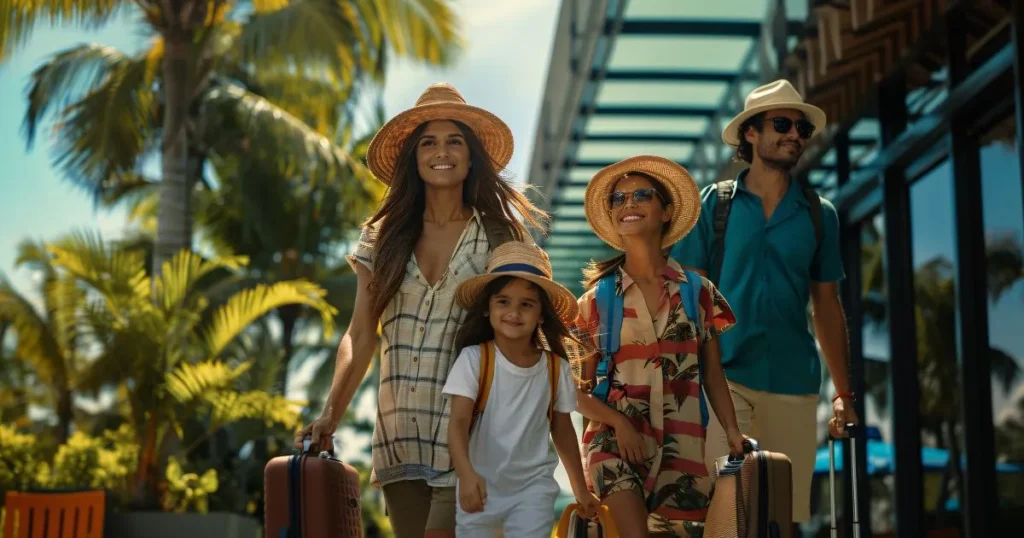
Morocco offers incredible family experiences, from camel trekking to exploring ancient cities. However, traveling with children requires additional safety considerations.
Child-Specific Safety Concerns
Health Considerations:
- Water and Food Safety: Children are more susceptible to traveler’s diarrhea
- Sun Protection: Morocco’s strong sun requires constant protection
- Medical Facilities: Ensure access to pediatric care in your destinations
Physical Safety:
- Old City Exploration: The tight, bustling alleyways can prove challenging for young travelers
- Traffic Awareness: Mixed pedestrian and vehicle areas require constant supervision
- Activity Safety: Some traditional activities may not be suitable for all ages
Family-Friendly Safety Strategies
Accommodation Selection:
- Choose family-friendly riads or hotels with safety features
- Verify availability of child-safe rooms (outlet covers, secured windows)
- Ensure swimming pool safety measures if applicable
- Request ground-floor rooms to avoid stairs when possible
Activity Planning:
- Book age-appropriate tours with reputable operators
- Plan shorter walking distances to accommodate children’s energy levels
- Include rest periods in daily itineraries
- Have backup indoor activities for extreme weather
Cultural Education:
- Teach children basic local customs before arrival
- Explain appropriate behavior in religious and cultural sites
- Practice Arabic phrases together as a family activity
- Discuss cultural differences as learning opportunities
Essential Family Travel Preparations
Health and Safety Kit:
- First aid supplies appropriate for children
- Prescription medications with extra supplies
- Sunscreen with high SPF ratings
- Insect repellent suitable for children
- Water purification tablets or reliable bottled water sources
Documentation:
- Copies of all documents for each family member
- Emergency contact information in Arabic and English
- Medical information including allergies and conditions
- Travel insurance covering family members and activities
Communication Plans:
- Child identification with contact information in local language
- Meeting points established in case of separation
- Emergency procedures practiced with children
- Local emergency numbers programmed in phones
Child-Friendly Destinations and Activities
Recommended Family Destinations:
| Location | Family Appeal | Safety Considerations |
|---|---|---|
| Marrakech | Gardens, snake charmers, horse carriages | Crowded souks require close supervision |
| Essaouira | Beaches, relaxed atmosphere | Strong ocean currents, sun protection |
| Chefchaouen | Blue streets, mountain views | Steep stairs, altitude considerations |
| Atlas Mountains | Scenic drives, Berber villages | Weather changes, altitude sickness |
Resources for Staying Informed
Official Government Sources
Primary Travel Advisory Sources:
- US State Department: travel.state.gov – Provides detailed country information and real-time updates
- UK Foreign Office: gov.uk/foreign-travel-advice – Comprehensive travel guidance for British citizens
- Canadian Government: travel.gc.ca – Travel advice and consular services information
- Australian Department of Foreign Affairs: smartraveller.gov.au – Travel advisories and safety information
Moroccan Tourism Resources
Official Tourism Information:
- Morocco National Tourist Office: visitmorocco.com – Official destination information and updates
- Ministry of Tourism: Current regulations and tourist assistance programs
- Regional Tourism Offices: City-specific information and emergency contacts
Travel Safety and Insurance Resources
Travel Insurance Providers:
- World Nomads: Comprehensive coverage for adventure travel
- Allianz Travel: Family-friendly policies with medical coverage
- Travel Guard: 24-hour assistance services
- IMG Global: International medical and travel coverage
Travel Safety Apps and Services:
- Smart Traveler (US): Official US government app with real-time alerts
- TravelSafe: Emergency assistance and location sharing
- SkyAlert: Weather and safety notifications
- GeoSure: Neighborhood safety ratings and alerts
News and Information Sources
Reliable News Sources:
- Morocco World News: English-language local news
- The Morocco Times: Current events and tourism updates
- BBC News – Morocco: International perspective on local events
- Al Jazeera English: Regional news coverage
Travel Community Resources:
- Lonely Planet Thorn Tree Forum: Traveler experiences and advice
- TripAdvisor Morocco Forums: Recent traveler reports and recommendations
- Reddit r/Morocco: Community discussions and current information
- Facebook Travel Groups: Real-time traveler updates and networking
Emergency Contact Information
Essential Embassy Contacts:
| Country | Embassy Location | Emergency Number |
|---|---|---|
| United States | Rabat | +212 537-637-200 |
| United Kingdom | Rabat | +212 537-633-333 |
| Canada | Rabat | +212 537-687-400 |
| Australia | Rabat | +212 537-779-400 |
Local Emergency Services:
- Police: 19
- Fire/Medical: 15
- Tourist Police: Available in major tourist areas
- Road Assistance: 177
Conclusion: Embracing Safe Morocco Travel
Morocco is indeed safe to travel when you approach it with proper preparation, cultural awareness, and common-sense precautions. The kingdom offers extraordinary experiences that far outweigh the manageable risks associated with visiting any foreign destination.
Key Takeaways for Safe Morocco Travel:
- Stay Informed: Monitor current travel advisories and local conditions
- Respect Local Culture: Dress modestly and observe cultural norms
- Remain Alert: Practice situational awareness in tourist areas
- Plan Ahead: Research destinations, accommodations, and transportation options
- Trust Your Instincts: Remove yourself from uncomfortable situations
- Maintain Communication: Keep emergency contacts accessible and share your itinerary
For Solo Female Travelers: Morocco is absolutely accessible with additional precautions around dress code, accommodation choices, and social interactions. Thousands of women travel solo to Morocco safely each year.
For Families: Morocco provides incredible educational and cultural experiences for children when proper safety measures are implemented and age-appropriate activities are selected.
The Moroccan Experience Awaits: From the bustling souks of Marrakech to the serene blue streets of Chefchaouen, from the ancient medinas of Fes to the stunning coastlines of Essaouira, Morocco offers experiences that will create lasting memories.
The overwhelming majority of visitors to Morocco have safe, enriching experiences. By following the guidelines in this comprehensive safety guide, maintaining awareness of your surroundings, and respecting local customs, you’re well-prepared to explore this fascinating country confidently.
Start planning your unforgettable Moroccan adventure today! With proper preparation and the insights provided in this guide, you’re ready to experience the magic, culture, and hospitality that make Morocco one of the world’s most captivating travel destinations.
Remember: safety doesn’t mean avoiding adventure—it means being prepared for it. Morocco awaits with open arms, incredible experiences, and stories you’ll treasure for a lifetime.

